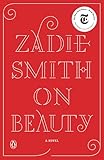In 1826, the philosopher John Stuart Mill had a nervous breakdown, and one of its causes was pretty odd. “I was seriously tormented by the thought of the exhaustibility of musical combinations,” he wrote in his autobiography.
The octave consists only of five tones and two semi-tones, which can be put together in only a limited number of ways, of which but a small proportion are beautiful: most of these, it seemed to me, must have been already discovered, and there could not be room for a long succession of Mozarts and Webers, to strike out, as these had done, entirely new and surpassingly rich veins of musical beauty.
In a way, Mill was being prescient: within a hundred years, serialist composers would forge onward, like the Vikings colonizing Greenland, to combinations of semi-tones that were not conventionally beautiful. But in another way, Mill was being ridiculous: no, a contemporary composer can’t use a tune that Mozart also used, unless it’s a deliberate allusion, but she can certainly use a tune that Weber also used, because no one listens to Weber any more. Mill’s nightmare of permutational famine would only be a real danger if any motif that any composer invented was registered permanently in some sort of giant musical database. Perhaps such a database does now exist, but no composer would be silly enough to check it. I only wish the same were true for narrative art.

 Discovering that the website TV Tropes began as a Buffy the Vampire Slayer messageboard is like discovering that Borges‘s “Library of Babel” began as a one-volume cricketer’s almanac. Since 2004, TV Tropes has swollen into a frighteningly comprehensive taxonomy of all known plot devices across all known media. Every story that’s ever thrilled you is there in microscopic cross section. In some respects it resembles books like Georges Polti‘s The Thirty-Six Dramatic Situations or Christopher Booker‘s The Seven Basic Plots, but it’s not nearly so reductive: it’s maximalist not minimalist, always delighted to add new categories. Really, its closest cousin is the Aarne–Thompson classification system, which attempts to anatomize all the world’s folklore into about 2,500 elements. And as a writer, I find it impossible to browse TV Tropes without feeling like Mill: how will anyone ever come up with anything new?
Discovering that the website TV Tropes began as a Buffy the Vampire Slayer messageboard is like discovering that Borges‘s “Library of Babel” began as a one-volume cricketer’s almanac. Since 2004, TV Tropes has swollen into a frighteningly comprehensive taxonomy of all known plot devices across all known media. Every story that’s ever thrilled you is there in microscopic cross section. In some respects it resembles books like Georges Polti‘s The Thirty-Six Dramatic Situations or Christopher Booker‘s The Seven Basic Plots, but it’s not nearly so reductive: it’s maximalist not minimalist, always delighted to add new categories. Really, its closest cousin is the Aarne–Thompson classification system, which attempts to anatomize all the world’s folklore into about 2,500 elements. And as a writer, I find it impossible to browse TV Tropes without feeling like Mill: how will anyone ever come up with anything new?
This fear isn’t abstract. Recently, I was on the point of starting my second screenplay when I thought I might as well check at the patent office for any prior art. On the TV Tropes page for Double Reverse Quadruple Agent, I came across a listing for Cypher, a 2002 film I’d never seen by Vincenzo Natali, director of the terrific Cube. The best twist in my outline was sitting there in Cypher. Dejected, I gave up on the screenplay. TV Tropes may have saved me from wasting my time on an idea that had already been wrung dry, but it may also have prevented me from developing that idea far enough that I could find something in it that was uniquely my own. So far, the same thing hasn’t happened with my prose fiction, but perhaps it’s only a matter of time.

 Of course, this is only a problem because my writing happens to be so preoccupied with plot. Most literary fiction is inoculated against TV Tropes. When Zadie Smith updates Howard’s End in On Beauty or Cynthia Ozick updates The Ambassadors in Foreign Bodies, they are assuming that the storylines are not by any means the most gripping things about those novels. I once interviewed the critic James Wood, and he told me that in his reviews he deliberately describes the entire book because he likes “destroying the tyranny of plot.” In other words, if TV Tropes gives you writer’s block, then maybe you’re not much of a writer.
Of course, this is only a problem because my writing happens to be so preoccupied with plot. Most literary fiction is inoculated against TV Tropes. When Zadie Smith updates Howard’s End in On Beauty or Cynthia Ozick updates The Ambassadors in Foreign Bodies, they are assuming that the storylines are not by any means the most gripping things about those novels. I once interviewed the critic James Wood, and he told me that in his reviews he deliberately describes the entire book because he likes “destroying the tyranny of plot.” In other words, if TV Tropes gives you writer’s block, then maybe you’re not much of a writer.
 And you can even make that same argument starting from the other side of the field. I recently asked the author China Miéville about TV Tropes, on which he has his own lengthy entry; because his work wallows in plot, I thought he might find the website as lethal as I do. In fact, he told me that he loves TV Tropes but he doesn’t worry about it. You don’t need a database, he said, to prove that it’s almost impossible to come up with anything truly original – just riffling through the canon will do that. Your task is just to force new tricks on old dogs. (After all, both Cypher and my abandoned screenplay were basically variations on Philip K Dick. TV Tropes itself has an entry for this called Older Than They Think.) And I agree with Miéville up to a point. But a lot of the joy of his novel The City and the City, for instance, arises from its ingenious premise. If he’d read on TV Tropes that The Twilight Zone had used the same plot in 1961, he would probably still have written his book, but I find it hard to believe he wouldn’t have been disappointed.
And you can even make that same argument starting from the other side of the field. I recently asked the author China Miéville about TV Tropes, on which he has his own lengthy entry; because his work wallows in plot, I thought he might find the website as lethal as I do. In fact, he told me that he loves TV Tropes but he doesn’t worry about it. You don’t need a database, he said, to prove that it’s almost impossible to come up with anything truly original – just riffling through the canon will do that. Your task is just to force new tricks on old dogs. (After all, both Cypher and my abandoned screenplay were basically variations on Philip K Dick. TV Tropes itself has an entry for this called Older Than They Think.) And I agree with Miéville up to a point. But a lot of the joy of his novel The City and the City, for instance, arises from its ingenious premise. If he’d read on TV Tropes that The Twilight Zone had used the same plot in 1961, he would probably still have written his book, but I find it hard to believe he wouldn’t have been disappointed.
And the horrible thing is, it doesn’t stop there. There’s a remark somewhere by (I think) Martin Amis about how all young writers have to confront the fact that there just aren’t many new ways left to describe an autumn sky or a pretty girl. It’s like peak oil for lyricism. And in the age of Google Books and Amazon Search Inside, we have to confront this even more brutally. Every time I come up with a simile that feels like it might be too obvious, I can put it into the search box and find that a dozen romance novelists have used it before me.
The answer, I think, is to think more about your audience. The average reader just isn’t as obsessive about precedent as the average writer. She is less likely to notice an echo, and if she does notice, she is less likely to mind. In other words, she is saner. To invent some contorted new plot twist because your previous one was already on TV Tropes, or some cumbersome new metaphor because your previous one was already on Google Books, is just self-indulgence: you like your book a bit more, but everyone else likes it a bit less. It’s best to spend just enough time on TV Tropes that you’re anxious to do something original, but not so long that you’re paralyzed. That’s easier advice to give than to follow, however, and whether or not I succeed, there is one pretty humbling circumstance I have no choice but to acknowledge: that the biggest existential challenge that I currently face as a novelist comes from a website that started life as a place for people to talk about whether Buffy should really have got together with Spike.
Previously: Trope is the New Meme
Image credit: Pexels/ana-clara-de-castro.









